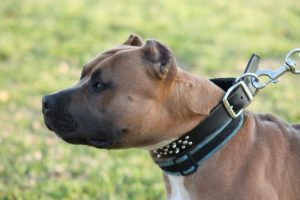Approximately 4.5 million dog bites are reported each year, with 1 in 5 of those bites becoming infected (according to the CDC), 28,000 requiring reconstructive surgery (according to the American Society of Plastic Surgeons) and accounting for one-third – or $700 million – of all homeowner insurance liability payouts (per the Insurance Information Institute). 
Defendants in these cases can sometimes include not just the owner of the dog, but the property owner controlling the site where the bite occurred.
In Litke v. Munkoff, the Idaho Supreme Court recently upheld a $201,000 verdict in favor of a dog bite victim against his neighbors and their adult son after the son’s dog bit him, causing serious injuries. The defendants sought a new trial or in the alternative, a remittitur to lower the damages. The state supreme court found no reversible error.
According to court records, it started when an animal control officer responded to the scene of an allegedly vicious dog and found a pit bull aggressively charging any person who got near him. The officer had to call in a second officer to help capture the dog, an the pair eventually tasered the canine to subdue and capture him. The next day, the dog’s owner (defendants’ son) called animal control officers to report the dog missing. The officer informed him the dog was in animal control custody, had been declared aggressive and that he would need to sign paperwork indicating he understood his requirements under local ordinance before he could claim the dog. The owner told the officer his dog would be better controlled at his parents’ home rather than his apartment. The officer met the dog’s owner at his parents’ home and determined the fence was appropriate in height to meet the ordinance requirements, but that he must also post a Beware of Dog sign and if the dog left the premises, he’d need to be muzzled. The father arrived home while the officer was there and agreed verbally to follow the ordinance requirements.
Just a few months later, animal control received a report of a dog bite that had occurred near the defendants’ home. The dog’s owner was cited for allowing the animal to run at-large and attacking. The dog was also declared dangerous. The owner was additionally cited for allowing another dog to run at-large at the same time. Animal control officers spoke with the father again, who stated his son was not allowed to move back in and the dog was not allowed to be on his property, even for a visit. Further, he told animal control if the dog were to enter his home, he’d shoot it.
That summer, the son took a job out-of-state and left his dog at his parents’ home, presumably with their permission. Plaintiff is defendants’ neighbor. He later testified the dog barked at him frequently and charged the fence aggressively whenever he was outside working on his yard. One day when the son returned for a visit, he took the dog out for a walk. The dog was not muzzled, as required for his dangerous designation. Plaintiff thought maybe if he could make friends with the dog, it wouldn’t bark at him so much. The son gave him permission to pet the dog. As plaintiff bent down to pet the dog, the animal lunged at him, knocked him to the ground and bit his face. Plaintiff’s lower lip and chin were partially torn from his face, as was a segment of his face.
Plaintiffs sued the son, his parents/ property owners, the city and the police chief. District court dismissed claims against the government. Defendant property owners filed a motion for summary judgment, which was granted all except for the allegation of negligence.
The case was tried, and the property owners and their son were found negligent and negligent per se, with jurors concluding defendants’ negligence caused plaintiff’s injuries. Plaintiff property owners sought a new trial, arguing their summary judgment motion should have been granted. In that motion, they argued they had no affirmative duty to prevent their neighbor’s injuries because they weren’t in control of the dog at the time of the incident. They conceded it might have been foreseeable the dog could have caused harm while on their property, but alleged the court did not examine whether the property owners were the dog’s custodian at the time of the incident. However, they alleged even if they had breached a duty of care, there was no causal connection because their son’s actions in walking the dog without a muzzle was a superseding cause. The court didn’t consider this.
However, the court did not err when it denied the defendants’ motion for a remittitur because the verdict was not excessive or made under the influence of passion and the jury’s damage award was supported by substantial and competent evidence.
Further, the court awarded plaintiff additional attorney fees for the cost of the appeal.
Call Fort Lauderdale Injury Attorney Richard Ansara at (954) 761-4011. Serving Broward, Miami-Dade and Palm Beach counties.
Additional Resources:
Litke v. Munkhoff, April 27, 2018, Idaho Supreme Court
More Blog Entries:
Study: One-Third of Young Adults Ride With Drug-Impaired Driver, April 4, 2018, Fort Lauderdale Dog Bite Injury Attorney Blog
 Broward Injury Lawyer Blog
Broward Injury Lawyer Blog



